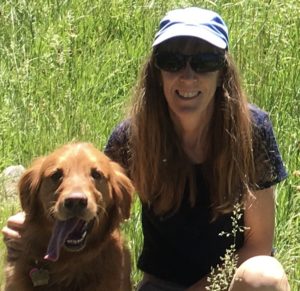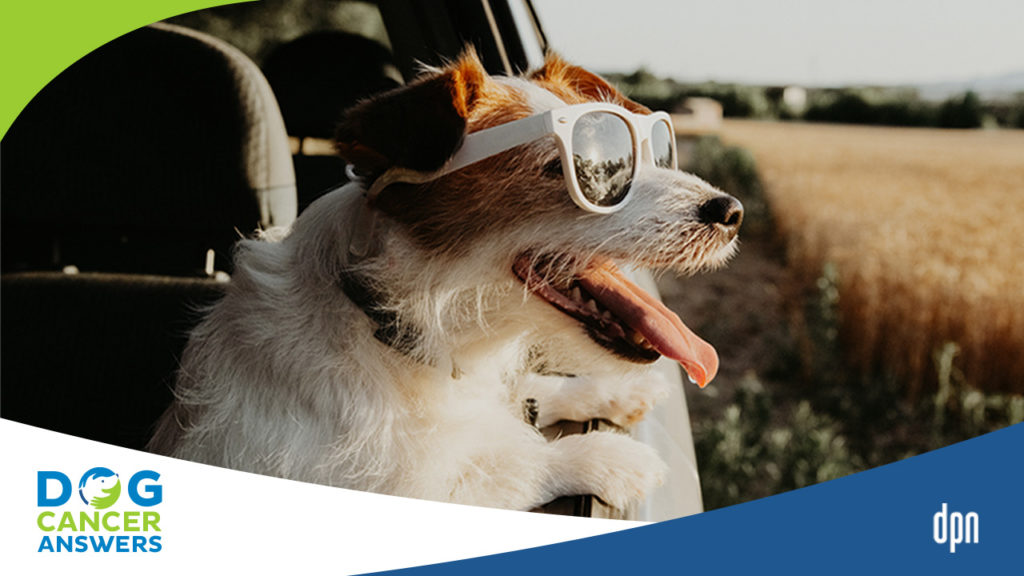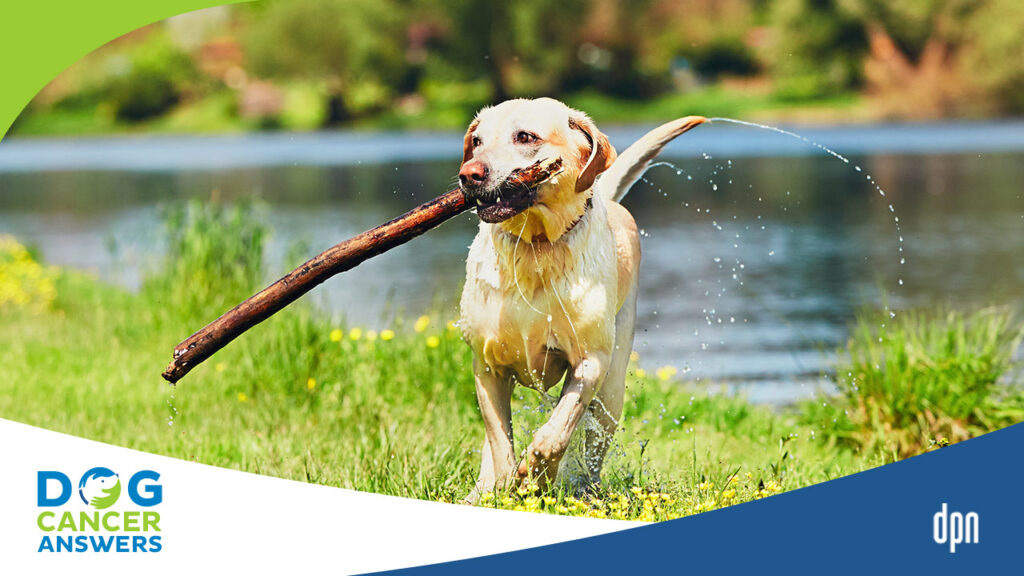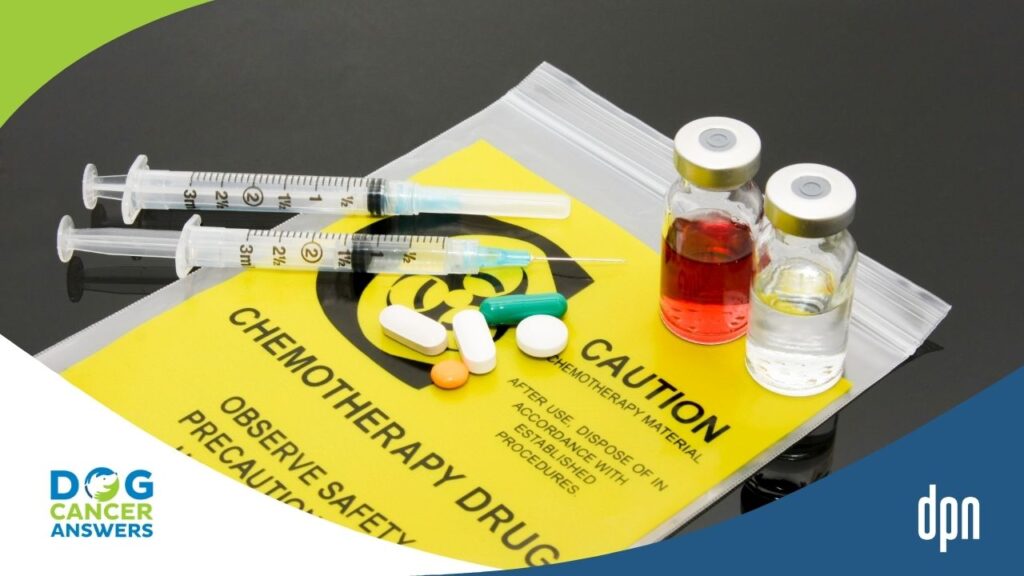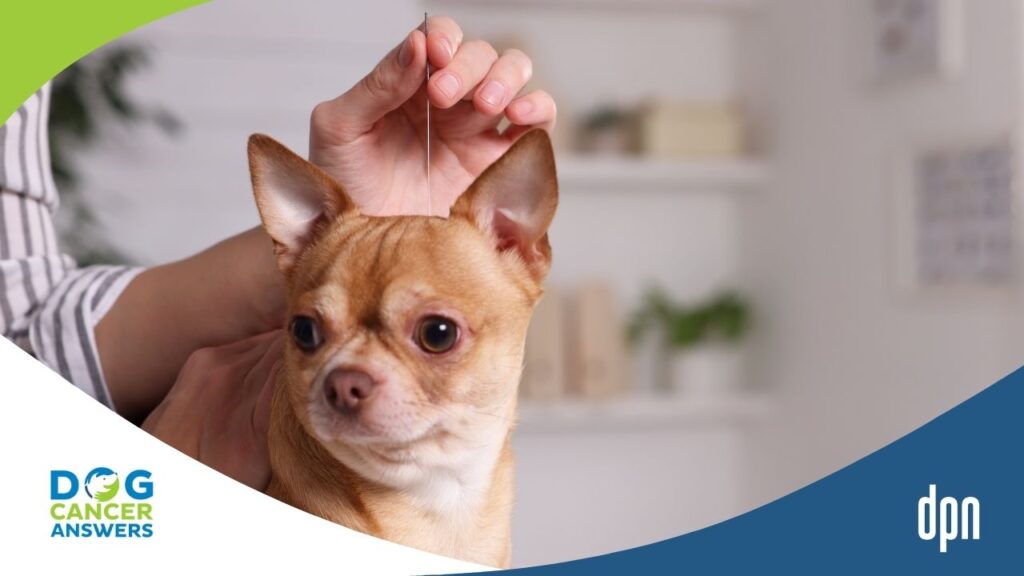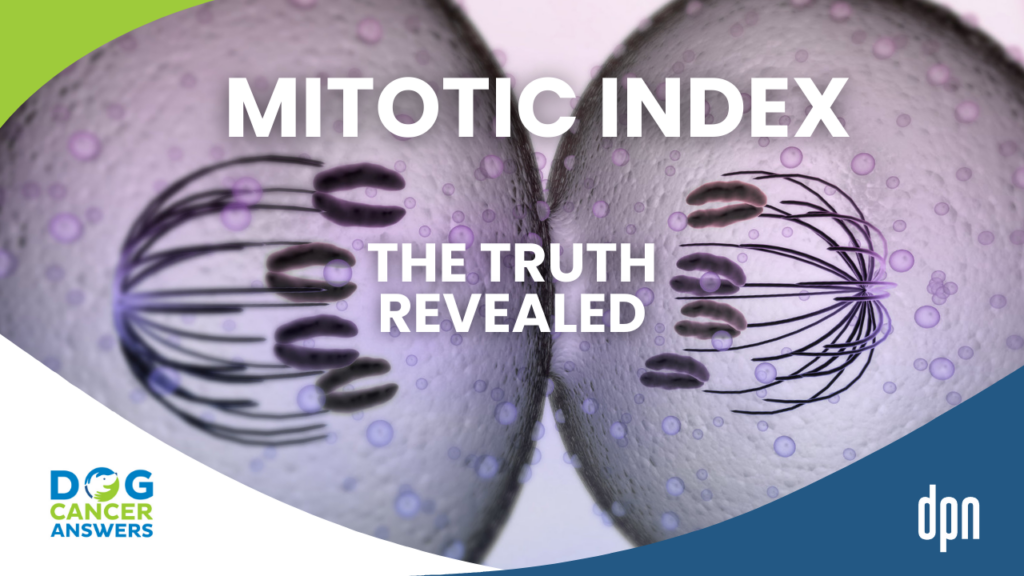EPISODE 95 | RELEASED November 9, 2020
Could a Vaccine Prevent Dog Cancer? │ Dr. Nancy Reese Q&A
Have you ever wondered why you can take your dog to the vet to get vaccines to help protect them from diseases like parvo, rabies, and kennel cough? Yet, there hasn’t been a vaccine developed that would help protect them from getting cancer. This week’s episode sheds light on the complex topic of cancer prevention and vaccines.
SHOW NOTES
Veterinarian, Dr. Nancy Reese joins us to talk about preventative veterinary medicine. She shares her expertise with listeners about the science behind existing preventative vaccines and explains how researchers and scientists are using your dog’s cancer markers in their DNA to help them discover target therapies, and hopefully, one day reduce or eliminate the susceptibility of your dog from getting cancer.
Links Mentioned in Today’s Show:
University Veterinary Schools offering clinical trials: http://vetcancersociety.org/pet-owners/clinical-trials/
Clinical Trial Resources: https://www.akcchf.org/research/participate-in-research/clinical-trials.html
>> Dr. Nancy Reese: We think of vaccines in general, as prevention therapies. So a parvo vaccine is designed to prevent the animal from getting sick with parvo. So why can’t we do that with cancer, especially since we know what things are out there, they have quote, cancer vaccines. Why can’t they be used as a prevention?
>> Announcer: Welcome to Dog Cancer Answers. Where we help you help your dog with cancer. Here’s your host, James Jacobson.
>> James Jacobson: Hello friends. Thank you for joining me this week for Dog Cancer Answers. Today’s episode is from the Dog Cancer Answers listener line. And that’s the place where you can call in and leave us a voicemail message with your question.
And one of our veterinarians will do their very best to answer it for you. Stay tuned for the end of this show, where I will give you the phone number to call in, so you can have your dog cancer question answered by one of our fantastic and very resourceful veterinarians.
This week’s topic is about preventative medicine.
You’ll hear our caller’s question in a moment, but to give you a hint, she wants to know why scientists haven’t developed a vaccine to prevent dogs from getting cancer. And that’s not to be confused with vaccines that are being developed to help treat dog cancer.
To answer this question, we are bringing in what are our colleagues and a returning guest on the show Dr. Nancy Reese. Dr. Nancy is a practicing small animal veterinarian with over 30 years of clinical experience. She has not only earned a doctorate in veterinary medicine, but she’s also earned a Master’s degree in Preventative Veterinary Medicine and a PhD from UC Davis in California.
What a perfect fit for this week’s question, right?
But before we get started with today’s show, I want to thank our sponsor, the best-selling animal health book, the Dog Cancer Survival Guide: Full Spectrum Treatments to Optimize your Dog’s Life Quality and Longevity. The book is written by Dr. Damien Dressler and co-authored by Dr. Susan Ettinger.
The Dog Cancer Survival Guide is the ultimate guide for all things, dog cancer. You can get a copy of the book anywhere that fine books are sold online and in physical bookstores, or you can download the ebook as a PDF for under $10. And if you use our promo code, which is “podcast”, you can save yourself an extra 10%, the website to check it out is dogcancerbook.com. That’s www.dogcancerbook.com.
Now let’s get into talking preventative medicine with Dr. Nancy Reese.
We want to welcome back Dr. Nancy to Dog Cancer Answers. Thanks for being with us today.
>> Dr. Nancy Reese: Thanks again for having me.
>> James Jacobson: We have a question from Hannah who called into our listener line and she wants to know a little bit about cancer prevention. Let’s listen:
>> LL Caller – Hannah: Good morning. My name is Hannah. I’m calling from Ponta Vedra, Florida. I’m calling because my setup. And a half year old golden doodle Elvis was recently diagnosed with B cell lymphoma and it’s been completely overwhelming, but I’ve learned so much from different podcasts and Facebook pages. My question is being that lymphoma is so common and cancers are so common in dogs.
Why can’t there be some type of preventative vaccine? Would you give these poor puppies before they develop any problems versus waiting till they develop a problem and then using your screens for immunotherapy? Just looking for better. And understanding because it’s really difficult and it’s very expensive.
That being said, we’d like to have some direction on maybe ideas of future preventative vaccinations for these poor little doggies. Thanks again. I appreciate all the knowledge and information. It’s been very helpful.
>> James Jacobson: That is a really good question. Yes. Cancer is way too prevalent and probably everyone is listening to this podcast. Knows that and feels that, and that’s firsthand experience what is on the horizon for prevention and especially when it comes to vaccinations.
>> Dr. Nancy Reese: That really is a great question because it would be so wonderful if we had something that would prevent some types of cancer, even if not all, at least some types would be just such a bonus for us.
We think of vaccines in general, as prevention therapies. So a parvo vaccine is designed to prevent the animal from getting sick with parvo. So we think, well, why can’t we do that with cancer? Especially since we know things are out there, they have quote cancer vaccines. Why can’t they be used as a prevention.
And a lot of it goes back to the way the immune system works. The immune system is designed in a body to know its own cells from invader cells. So viruses and bacteria and things that come from outside the self are treated as foreign invaders. Whereas the immune system tolerates your own cells just fine.
That’s why we don’t generally, unless you have an auto-immune disorder. We generally don’t destroy our own tissues. So when we make a vaccine, you take some inactivated portion or a part of a virus or something that’s been changed somehow and give it to the human or the animal. And their immune system then goes after that organism or that vaccine that you’ve given and it sort of primes it so that if you come in contact with the real virus, then your immune system can attack that, but cancer develops from your own normal cells.
So you have lymphocytes that are very important to have in the body that are big at producing a lot of our immune reactions, but lymphoma or some other types of cancers. Come from that initially normal cell that then changes and becomes abnormal. So one of the cancer vaccines that they use or try to use for lymphoma targets a specific antigen or marker on the cell that normal cells have, but cancer cells have more of.
So when you give this vaccine that stimulates a reaction against that marker. It will attack more of the abnormal cells, but that marker still is on regular cells too, because it came from normal cells. So there’s that possibility that will cause a reaction against your own cells. So it’s very different from having a vaccine for a completely foreign substance versus something that came from your own cells.
One of the future things, which they’re studying now in a couple of different trials, they have found that several cancers seem to have a similar marker. If you will, that’s a little bit different from normal cells. So even though the cancers come from normal cells, a lot of cancers will express this particular protein thing.
And if they make a vaccine against that, They’re hoping that it will prevent the cancer from developing. So there’s some trials going on at some of the major veterinary colleges across the country trying that vaccine, but it will probably be quite a few years before we get to see the results of that.
So it’s a great idea. And I think someday we will probably find more of those. Sort of unique markers that we’ll find more consistent. Like all cancers have this chemical that if we make a vaccine against it could work, but for right now, cancer is such a diverse group and there’s so many different versions of a single type of tumor.
That it’s really hard to make something that everybody could get a vaccine for to prevent that cancer.
>> James Jacobson: Other than a vaccine, which may be on the horizon with these trials. And we’ll put some links in the show notes for where people can sign up, if they would like to participate in these trials. Other than that, what are some general rules of thumb that you would give? That sort of fall under this banner of like cancer prevention, like maybe things that you do with your own dog or things that you tell your clients?
>> Dr. Nancy Reese: Probably most readers of the dog cancer survival guide will certainly have a really good solid basis for the things we can do at home to try to minimize exposure to things that might be linked to cancer.
It’s really difficult because you just look in our environment and there is just stuff everywhere that hasn’t always been here. So I think we are exposed to so many toxic things and toxic is a pretty broad category, but things that our bodies keep having to respond to that make it very difficult to completely prevent cancer.
Being in California where these ridiculous wildfires that we’re having and being around the constant smoke and ash and the chemicals burned in those types of situations. I just can’t imagine that, that type of exposure couldn’t be contributing to some later cancer. We’d never be able to link that easily, but there’s so many things out there.
The things we eat, the plastics we cook in the stuff on the ground that the animals lick their paws. There’s so much exposure to things and trying to completely avoid those is pretty much impossible, but you can try to keep the animal from having intentional exposure to those. If you’re going to spray pesticides, keep the animal away from that, feed them a good, healthy diet.
And The Dog Cancer Survival Guide certainly has one of those in there that I actually fed to my own dog for a while. And then trying to minimize things like we know that smoking is associated with cancer in dogs. Obviously the dogs are not doing the smoking, but being in a house with a smoker increases the risks of some cancer.
So trying to avoid as much as you can, those things that we know are linked to cancer, but yeah. Unfortunately, it’s just not avoidable altogether.
>> James Jacobson: There are some vaccines that are used in the human space. Do those have any applicability to dogs?
>> Dr. Nancy Reese: So two of the cancer prevention vaccines that I can think of in human are actually vaccines against the viruses that cause the cancer.
So there’s the HPV vaccine and hepatitis vaccine. Which help prevent the infections that cause the cancer in the first place. So while it will prevent getting that particular type of liver tumor or the sexually transmitted diseases of the HPV virus, they aren’t actually targeting the cancer. They’re targeting the virus that causes the cancer.
So it’s a little bit of a different situation. There are some other human cancer vaccines, which they’ve tried to make dogs similar ones, but they just haven’t panned out yet.
>> James Jacobson: Okay, Dr. Nancy, thank you so much. Hopefully it preventative is somewhere on the horizon when it comes to a vaccine, but in the meantime, just to practical things, like get your dog to stop smoking cigarettes.
>> Dr. Nancy Reese: There you go.
>> James Jacobson: I’d like to thank our caller Hannah for bringing that great question to our attention this week. And of course I’d like to thank Dr. Nancy for providing us with her veterinary expertise on vaccines and cancer prevention. And of course, to our shows and sponsor The Dog Cancer Survival Guide, by doctors, Damien Dressler and Sue Ettinger.
As a quick reminder, if you haven’t gotten your own copy of The Dog Cancer Survival Guide, there are so many ways that you can get yours today, including purchasing a paperback at the bookstore or buying it direct from the publisher, which is Maui media. You can also download. The PDF for less than $10.
As a courtesy to our listeners, you – were offering a discount code that’ll save you 10% off the book. The code is “podcast”. Use that when you check out and you will save 10%. The website dogcancerbook.com, that is www.dogcancerbook.com.
If you’d like to check out today’s show notes, which include all the resources and links that were mentioned in this episode. You can find those on our website at dogcanceranswers.com.
And because we know how hard having a dog with cancer is, we want to make sure that you’re able to stay in the loop by getting on our email list, to receive the Dog Cancer News newsletter. The newsletter is completely free and will deliver dog cancer articles and recipes and new developments in dog cancer, straight to your email box
With little or no effort on your part – all you have to do is sign up. Subscribing is absolutely free and here’s where to do it. Go to dogcancernews.com, sign up and you’ll get the newsletter for free.
Did you hear those? Those touchstones, remind me to remind you that we have veterinarians on call at dog cancer answers on our listener line. And they’re available to take your question. If you have questions for one of our dog cancer vets. Give us a call and tell us about it. We’ll make sure that your question is addressed with one of our veterinary experts. Your question might even appear on a future episode of Dog Cancer Answers.
The telephone number for this listener hotline is (808) 868-3200. It’s available 24 hours a day, seven days a week. It’s a recorded line, the phone number (808) 868-3200. Or you can visit us on our website at dogcanceranswers.com.
Well, that concludes today’s episode with Dr. Nancy Reese. Until next time, I’m your host James Jacobson. And from all of us here at Dog Cancer Answers and Dog Podcast Network, we wish you and your dog a very warm Aloha.
>> Announcer: Thank you for listening to Dog Cancer Answers. If you’d like to connect, please visit our website at dogcanceranswers.com. Or call our listener line at (808) 868-3200.
And here’s a friendly reminder that you probably already know: this podcast is provided for informational and educational purposes only.
It’s not meant to take the place of the advice you received from your dog’s veterinarian. Only veterinarians who examine your dog can give you veterinary advice or diagnose your dog’s medical condition. Your reliance on the information you hear on this podcast is solely at your own risk. If your dog has a specific health problem, contact your veterinarian.
Also, please keep in mind that veterinary information can change rapidly. Therefore, some information may be out of date. Dog Cancer Answers is a presentation of media and in association with Dog Podcast Network.
Hosted By
SUBSCRIBE ON YOUR FAVORITE PLATFORM
Topics
Editor's Picks
CATEGORY
